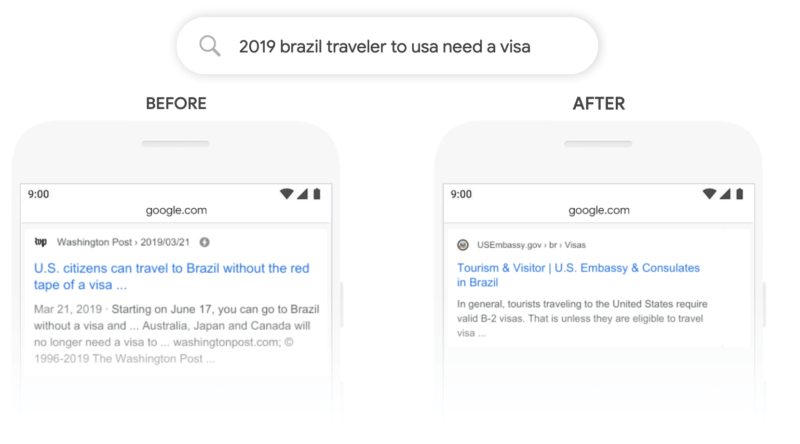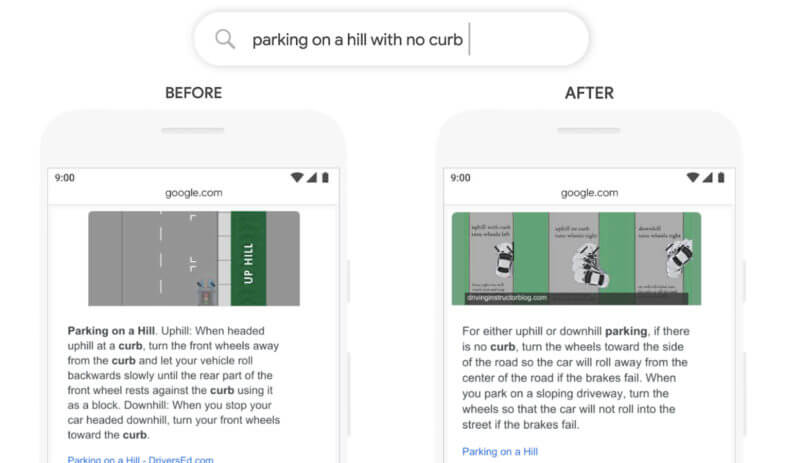In Google’s ever-evolving mission to produce relevant organic results for its search engine users, they have rolled out BERT, their biggest update in the last 5 years. BERT is language processing technology and stands for Bidirectional Encoder Representations from Transformers. Let’s break down what that actually means for search engine users and businesses.
How Does BERT Improve Search Results?
Google’s new BERT technology better analyzes a user’s search query to better understand what they’re searching for, often in a conversational or inquisitive tone. By doing this, the searcher will be served organic results that more closely align with the intent of their search. Google is rolling the update out in English first and then will apply BERT’s learnings to other languages in the future.To help explain this change, Google gives an example of the search query “2019 brazil traveler to usa need a visa.” The word “to” is extremely important in helping Google understand the intent of the search query.

The previous result would have displayed a link about U.S. citizens traveling to Brazil rather than the other way around, as it was intended. “With BERT, Search is able to grasp this nuance and know that the very common word ‘to’ actually matters a lot here, and we can provide a much more relevant result for this query,” Google explained.Google also mentioned the update will apply to featured snippets as well. A featured snippet is a box at the top of organic results that immediately answers the question posed in the search phrase. This means that BERT will analyze the words in the search query to more closely predict the answer the user is expecting. In Search Engine Land’s example below, Google said, “We placed too much importance on the word ‘curb’ and ignored the word ‘no,’ not understanding how critical that word was to appropriately responding to this query. So we’d return results for parking on a hill with a curb.”

BERT and Your Business
Overall, the main consensus among Search Engine experts like Danny Sullivan is that there are no major changes that need to (or can) be made to your site that will improve your standing in Google after this latest update. Your content strategy should remain focused on your personas, their needs, and answering their questions as if you were speaking to a human, not a search engine bot. The benefit to search engine users is clear, but what is the benefit for businesses?
Ideally, your website will receive more qualified traffic which should result in lower bounce rates and increased leads or sales. However, this does create the possibility of your overall organic website traffic decreasing as Google gets more focused on generating more specific results.
If that’s the case, we recommend looking closely at the pages that are seeing traffic reductions and developing solutions to improve their performance.Lastly, the opportunity to appear in the featured snippet box has always been an option and is awarded only at Google’s discretion. With BERT’s focus on better understanding a person’s search query there’s even more opportunity to create content that gives people the answers they’re looking for, backed up by easily digestible facts. Then maybe, just maybe, you’ll get promoted to the coveted “zero” search ranking position! Want more information on optimizing your website for Google search engine results? Feel free to reach out to us!
